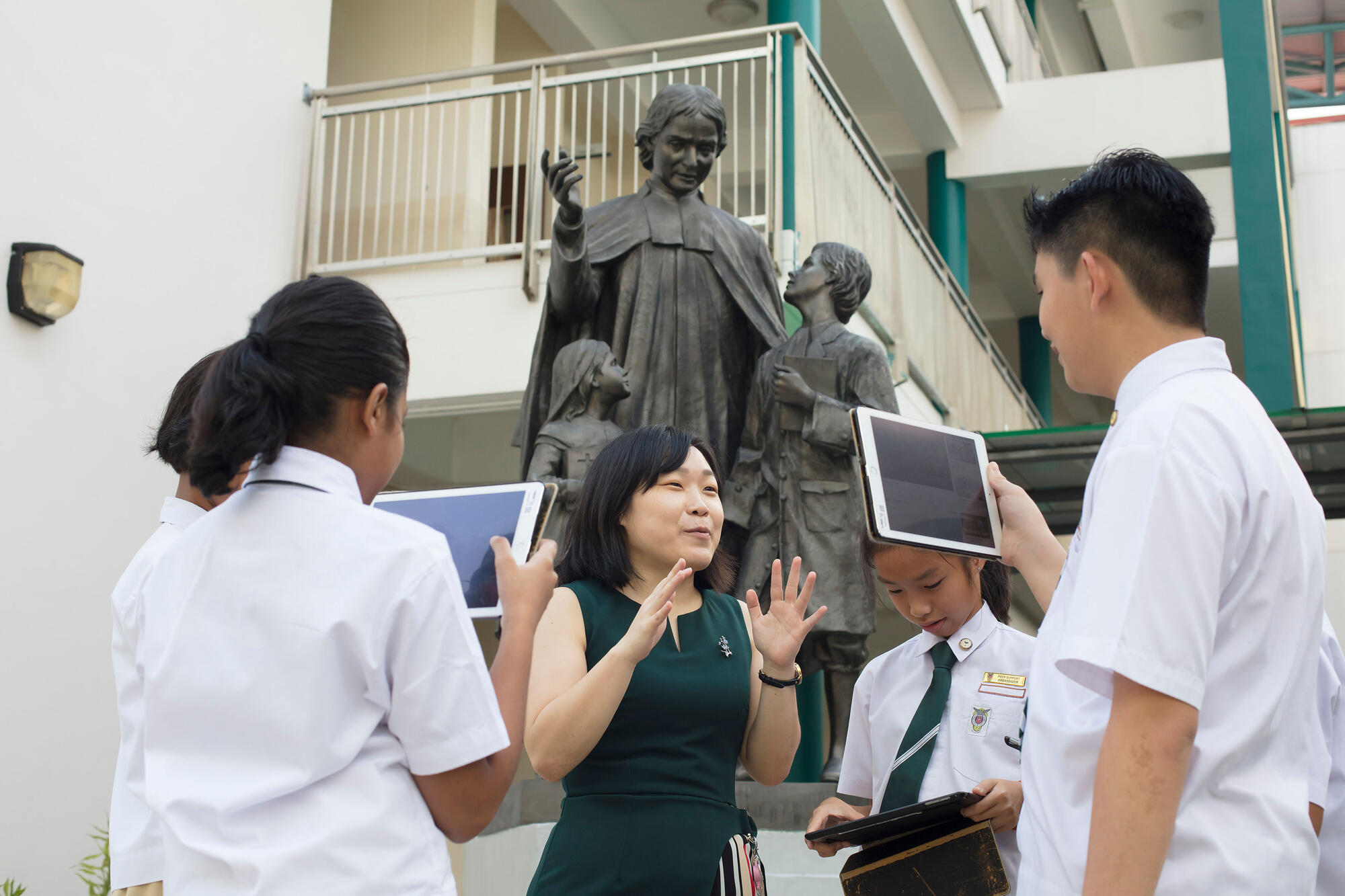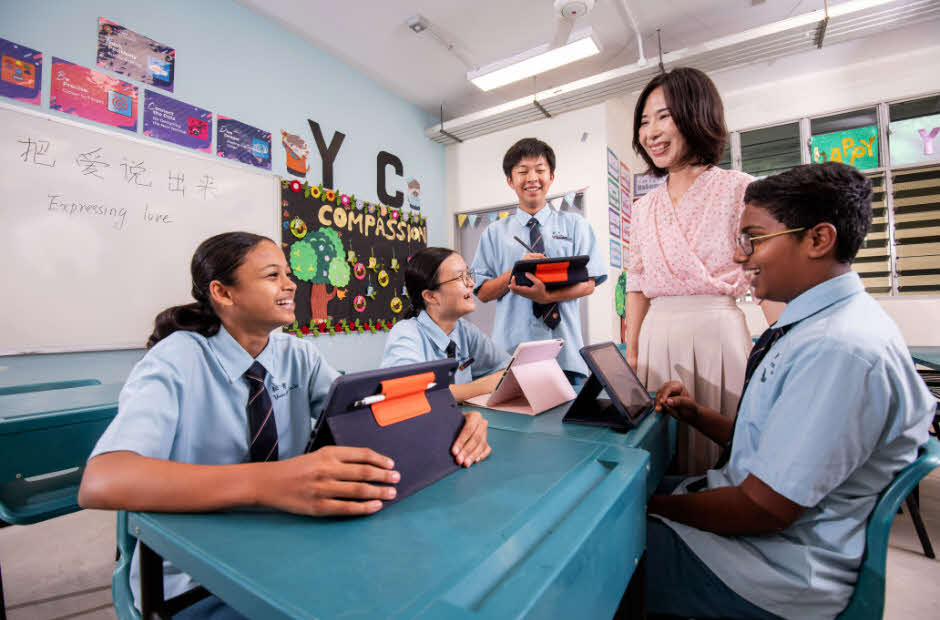Mr Jahangeer B Mohamed Jahabar, Endeavour Primary School, President’s Award For Teachers 2022 Recipient
Asking a group of Primary 6 students to calculate the circumference of the earth might seem far-fetched, but Jahangeer had faith that they could do it. After all, ancient Greek mathematicians had accomplished this daunting task using little more than shadows cast by poles stuck in the ground.
By measuring angles of the shadows and distance between the poles, his students were able to complete their assignment.
“It was tough, but in the end, they had an accuracy of 99%. They couldn’t believe it. They all just clapped. They had tasted success in a big way,” he recalled.
The trick was to break the complex task down into smaller and more manageable pieces, then tackle those one step at a time – something Jahangeer gets his Endeavour Primary School students to do for all kinds of problems they face.
It is a process that comes to him naturally: in his former jobs, he took apart aircraft components and computers for servicing.
Sometimes, he helps his students by bringing them back to the fundamentals, such as multiplication tables.
Other times, he uses cognitive techniques to help them remember what he teaches. He would write an equation on the board, get his students to read it aloud, write it in the air with their fingers, then close their eyes and recount what they just learnt.
“It’s total sensory immersion,” he explains. “It takes time, but they will see success. That’s what it is all about – with small wins comes more confidence.”
Confidence: Level Up
These small wins could even take the form of more manageable assignments.
A Primary 6 student who scored just 8 marks in the mid-year Maths examination turned to Jahangeer for help. The student, who experienced difficulties at home, often did not complete his homework and struggled academically. Jahangeer decided to give the boy less homework than his classmates, but expected him to be able to solve every sum. With consistent affirmation and encouragement from Jahangeer, the boy’s confidence grew. He began actively participating in class. Before long, the child who once spent his time loitering on the streets till late, was found completing his Maths homework after school.
If small wins can boost a student’s confidence, what more would it do if a group of students could take on their own teachers in a Maths game?
That is part of the thinking behind the Interactive Maths Exchange Zone (IMEZ), a covered space which Jahangeer set up near the school’s canteen. There, students can view displays relating to numbers and mathematics such as unusual ancient dice and old currency notes.
The most popular aspect of IMEZ is the maths-related games that students can play against each other using smart devices during their recess breaks. To make it more exciting, he often invites other teachers, or even the School Leaders to play against the students.
“It’s all good fun but the children learn too and their self-belief grows.”
Helping Students by Helping Parents
Jahangeer’s methods have been so effective that his students’ parents occasionally turn to him for help. Often, they are seeking assistance on a Maths problem they are unable to help their children solve.
“Some of these questions may be from old examination papers. I try to give them some hints so that they can figure out the answers for themselves – bite-sized learning for parents!” he says with a laugh.
In 2012, after numerous conversations with parents who were unfamiliar with some of the concepts and problem-solving strategies, Jahangeer took things a step further.
Leading a team of teachers, he started an annual workshop for parents on topics like Understanding Model Drawing, PSLE Preparation and Students’ Common Misconceptions and Mistakes.
As many as 200 to 300 parents now turn up for the workshops.
In one case, he met a parent who was so intent on brushing up his Maths skills that he asked for an hour’s coaching each day for an entire week during the school holidays. Amazed, Jahangeer obliged.
In the long run, it is a win-win scenario. “We believe that with more skilled parents, the students will be able to get strong support both from school and from home,” he says.
Sometimes, the Maths questions that parents send him may prompt him to make a last-minute change to the day’s lesson plan.
“If I feel the question is interesting or unique, I may share it with my students so that everyone can benefit. The confidence of the students would grow if they could solve a problem that had stumped adults, including perhaps their own parents!”
Indeed, it takes a village to raise a child.
He tells us stories and gives us examples that we could understand. Now I’m doing better in class. Maths is still not my favourite subject – but now it’s the second best! –
Adalia Pu En Qi, Primary 6






